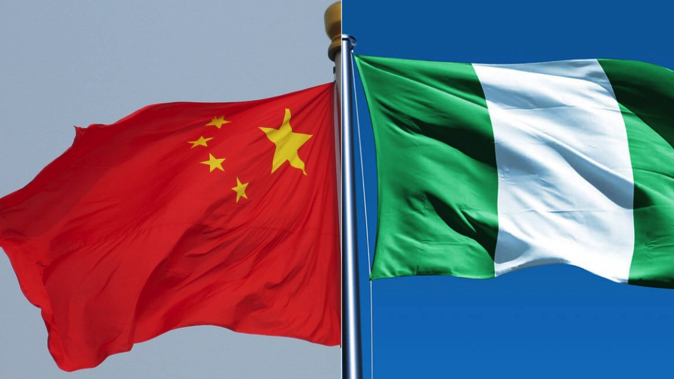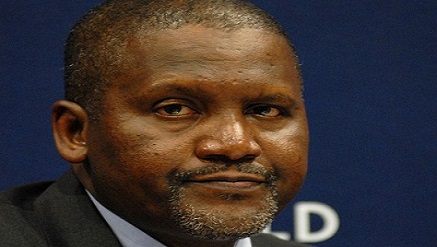News
Pantami says Digital Innovation and Entrepreneurship Centre will Fast-track the Implementation of Start-up Bill

Prof. Isa Ali Pantami, the Minister of Communications and Digital Economy, has expressed optimism that the National Digital Innovation and Entrepreneurship Centre once completed would fast-track the implementation of the Nigeria Start-up Bill, as he described the ongoing construction project as satisfactorily on course.

Prof. Pantami made this known after an-on-spot inspection of the site.
While noting that the project which is being executed by the National Information Technology Development Agency (NITDA) under the supervision of the Federal Ministry of Communications and Digital Economy is the hallmark of remarkable partnership between the visionary administration of President Muhammadu Buhari and a wholly indigenous yet forward looking company – Cosgrove Investment Limited, the Minister averred that the Centre which sits on 1,596sqm of built-up space within the FCT City Centre and comprises of two towers connected across one floor will be the hub for incubating and executing NITDA’s mandate.
“I have visited most of the floors of the National Digital Innovation and Entrepreneurship Centre; there are two buildings that are interconnected, one of them will serve as the actual National Digital Innovation and Entrepreneurship Centre as approved by the Federal Executive Council (FEC) after my presentation at the 11th of November, 2020 while the second one will serve as the Headquarters of the National Information Technology Development Agency to manage the other centre”.
“I’m very comfortable with what I have seen here and I came to the facility because it is our responsibility to ensure that any approval by FEC under our supervision is being implemented according to agreement.
“I can confirm to you that all the specifications of the project are in alignment with what the Council had approved twice, in November, 2020 and April, 202”, Pantami assured.
The Minister who was accompanied by the Director-General of NITDA, Kashifu Inuwa CCIE during the inspection at different times engaged the engineers on site and company officials in talks relating to the execution, as he commended the DG, Board and management of NITDA for the progress achieved with emphasis on the quality of the job done so far.
Pantami who later briefed journalists on the Pros and Cons of the facility, informed the press that Twelve Billion Naira (12BN) inclusive of VAT and other taxes is the total sum allotted to the project.
“The project was first approved in Nov, 2020 at the price of around 9.56BN and the augmentation which is an extension of the project was approved in April 2021 with additional N2.5B”.
“To be honest, I applaud the judicious way and manner NITDA has been handling the execution of the task, because if it were another institution, the total sum would have been double of it before it would have been executed”, Pantami maintained.
Although the completion date as approved by FEC is thirty-six months, spanning from November 2020 to 2023, Prof. Pantami however said haven taken into cognisance the fact that it is a legacy project of the present administration, the ministry was able to engage the project managers and contractors to speed up the completion timeline in order ensure that Mr President Inaugurates it before the expiration of his tenure.
The Communications and Digital Economy Boss took time to elucidate the benefits of the centre which he said was an idea he conceptualized when he was the Director-General of the National Information Technology Development Agency NITDA and is pleased to see it gradually coming to a reality.
He highlighted the fact that the building will play a significant role in implementing the Nigeria Start-up Bill which was recently passed by the National Assembly and assented to by President Muhammadu Buhari.
“The floors of the building will be dedicated to trainings, particularly hands-on-training, which will enable our young innovators to harness their skills and hatch their ideas from conception to impact”.
“This is going to be the centre where we will coordinate the issue of tax holiday for the innovators, pioneer status, intellectual property among many other benefits.
“More so, we are looking at consolidating on the diversification drive of the Federal Government; by implication, the regulator of Information Technology (IT) has a critical role towards the consolidation of the economic diversification that we have unarguably attained”, Pantami stressed.
NITDA Kashifu Inuwa CCIE, the Director-General of who was full of appreciation to the Minister of Communications and Digital Economy, Prof Isa Ali Pantami for his leadership and support to the Agency from inception of the project, getting approvals to where it is, recalled that the project was conceptualized in 2020 to strengthen the Abuja ecosystem.
Inuwa said the edifice will draw in start-ups, investors, multinationals, and government to be in the one space where discussions to move the digital economy forward will be sustained.
“We are hoping to finish this project within two years. Though it is not am easy task but we are working day and night to ensure we meet the expected quality and early delivery of the facility by March 2023 as partial completion will not be accepted”, Inuwa noted.
The DG also expressed gratitude to the Minister for okaying the involvement of an indigenous company in executing the job.
The 4,000 sqm plot for the Entrepreneurship and Digital Innovation Centre, located at plot 1409, CBD Cadastral zone sits the 2-tower edifice; an office complex and a mixed-use building going up to seven and eight suspended floors, respectively
The two towers are linked at all levels, for an overall area of 1,500 sqm and a total of 9 levels (from basement to roof terraces is to be the digital and innovation hub for the National Information Technology Development Agency (NITDA)
The building accommodates offices and meeting rooms (front tower), parking, auditorium, server rooms, a fab-lab and studio apartments (back tower)
The offices are designed for 9 departments and can accommodate over 360 staff
It is hoped that the ICT sector which as reported by the National Bureau of Statistics (NBS), played a pivotal role in lifting the Nigerian economy out of recession, recording the highest growth rate in the 4 Quarter of 2020 (14.70%), and recorded 15.9% growth in the telecommunications sub-sector (the highest growth rate over the last decade) as well as unprecedented generation of over N1Trillion revenue in less than 2 years by the Ministry and its parastatals will be continue to grow exponentially especially as the centre upon completion is expected to offer increased digital trainings to Nigerians.
News
China Expands Zero-Tariff Trade for Nigeria, 52 Other African Nations

China has announced the full implementation of a zero-tariff scheme for 53 African countries, including Nigeria, under the Changsha Declaration, further strengthening economic ties within the Forum on China-Africa Cooperation (FOCAC).

The announcement, made by China’s Ministry of Foreign Affairs, followed a high-level meeting between Chinese officials and African foreign ministers in Changsha. The initiative stems from commitments made during the 2024 Beijing Summit of FOCAC, which focused on building a stronger China-Africa partnership in a rapidly evolving global landscape.
According to a statement released after the meeting, the representatives of China, 53 African nations, and the African Union Commission affirmed their commitment to creating an “all-weather China-Africa community with a shared future for the new era.”
The declaration highlighted the rising influence of the Global South and underscored the importance of collaboration in advancing development, multilateralism, and equitable global governance. It also criticized growing unilateralism, protectionism, and economic coercion, calling on countries, particularly the United States, to resolve trade disputes through mutual respect and dialogue.
The ministry stressed that African nations face pressing economic and developmental challenges that demand urgent international attention. It urged for increased development assistance, rather than cuts, to support poverty reduction and infrastructure growth across the continent.
In a significant move, China committed to expanding zero-tariff treatment to 100 percent of tariff lines for all 53 African countries with diplomatic relations with Beijing, excluding Eswatini, which has no official diplomatic ties. This will allow greater access for African goods to the Chinese market.
For Africa’s least developed countries, the plan includes enhanced market access measures, streamlined inspection and customs procedures, and increased technical training and trade facilitation.
Additionally, China pledged support for the African Union’s Agenda 2063, with a focus on modernization and sustainable development.
The Chinese government also announced plans to implement the China-Africa Economic Partnership for Shared Development, deepen cooperation in green industries, e-commerce, science and technology, artificial intelligence, finance, and legal frameworks.
The statement also reaffirmed plans to strengthen people-to-people ties, including initiatives like the “2026 Year of People-to-People Exchanges.”
In September 2024, President Bola Tinubu signed five memoranda of understanding during a meeting with Chinese President Xi Jinping.
Speaking at the Beijing summit, Tinubu described the China-Africa relationship as a “true testament” to the strength of mutual respect and cooperation.
Foreign Affairs Minister Yusuf Tuggar later confirmed that the agreements signed with China are in various stages of implementation.
News
Aliko Dangote Signs out @ Dangote Sugar Refinery as Chairman

In a major leadership transition, Dangote Sugar Refinery Plc (DSR) has announced the retirement of Aliko Dangote, its founder and chairman, from the Board, effective June 16, 2025.

Aliko Dangote
The announcement was made in a regulatory filing with the Nigerian Exchange Ltd on June 11, highlighting the company’s commitment to sound corporate governance and structured succession planning.
In a statement signed by Mrs. Temitope Hassan (FCIS), company secretary and legal adviser, the Board praised Dangote’s extraordinary leadership and lasting contributions to the company.
“Alhaji Aliko Dangote is one of the founding Directors of the Company and has served with exceptional leadership, integrity, and vision since 2005,” the statement read.
“Under his stewardship, Dangote Sugar Refinery transformed significantly, navigated industry changes, consistently delivered value to shareholders, and upheld strong governance principles.”
Widely regarded as Africa’s most influential industrialist, Dangote led DSR’s evolution into a dominant player in Nigeria’s sugar value chain.
His strategic initiatives, particularly the Backward Integration Projects (BIPs) across Adamawa, Taraba, and Nasarawa States, advanced the company’s self-sufficiency goals and aligned with the federal government’s national sugar master plan.
While stepping down from DSR, Dangote will continue as President of Dangote Industries Limited.
His legacy at DSR is marked by industrial innovation, strategic foresight, and sustained operational excellence.
To ensure a seamless transition, the Board has appointed Mr. Arnold Ekpe, a seasoned independent non-executive director, as the new chairman, effective June 16.
Ekpe is renowned for his tenure as Group CEO of Ecobank Transnational Incorporated, where he championed pan-African financial inclusion and institutional growth.
His extensive experience in banking and corporate governance is expected to strengthen DSR’s next phase of development.
The leadership change signals continuity of vision, with DSR reaffirming its focus on operational efficiency and long-term value creation in a dynamic market.
For shareholders and industry observers, Dangote’s exit from the Board marks the end of a transformational era—one defined by bold ambition and strategic execution—while opening a new chapter under Ekpe’s leadership.
News
Report Reveals New Malware Posing as an AI Assistant Steals User Data

Kaspersky Global Research & Analysis Team researchers have discovered a new malicious campaign which is distributing a Trojan through a fake DeepSeek-R1 Large Language Model (LLM) app for PCs.

The previously unknown malware is delivered via a phishing site pretending to be the official DeepSeek homepage that is promoted via Google Ads.
The goal of the attacks is to install BrowserVenom, a malware that configures web browsers on the victim’s device to channel web traffic through the attackers servers, thus allowing to collect user data – credentials and other sensitive information. Multiple infections have been detected in Brazil, Cuba, Mexico, India, Nepal, South Africa and Egypt.
DeepSeek-R1 is one of the most popular LLMs right now, and Kaspersky has previously reported attacks with malware mimicking it to attract victims. DeepSeek can also be run offline on PCs using tools like Ollama or LM Studio, and attackers used this in their campaign.
Users were directed to a phishing site mimicking the address of the original DeepSeek platform via Google Ads, with the link showing up in the ad when a user searched for “deepseek r1”.
Once the user reached the fake DeepSeek site, a check was performed to identify the victim’s operating system. If it was Windows, the user was presented with a button to download the tools for working with the LLM offline. Other operating systems were not targeted at the time of research.
After clicking on the button and passing the CAPTCHA test, a malicious installer file was downloaded and the user was presented with options to download and install Ollama or LM Studio.
If either option was chosen, along with legitimate Ollama or LM Studio installers, malware got installed in the system bypassing Windows Defender’s protection with a special algorithm.
This procedure also required administrator privileges for the user profile on Windows; if the user profile on Windows did not have these privileges, the infection would not take place.
After the malware was installed, it configured all web browsers in the system to forcefully use a proxy controlled by the attackers, enabling them to spy on sensitive browsing data and monitor the victim’s browsing activity.
Because of its enforcing nature and malicious intent, Kaspersky researchers have dubbed this malware BrowserVenom.
“While running large language models offline offers privacy benefits and reduces reliance on cloud services, it can also come with substantial risks if proper precautions aren’t taken.
Cybercriminals are increasingly exploiting the popularity of open-source AI tools by distributing malicious packages and fake installers that can covertly install keyloggers, cryptominers, or infostealers.
These fake tools compromise a user’s sensitive data and pose a threat, particularly when users have downloaded them from unverified sources,” comments Lisandro Ubiedo, Security Researcher with Kaspersky’s Global Research & Analysis Team.

 General News2 days ago
General News2 days agoAfDB to Provide $184.1mfor Africa’s Largest Solar Energy, Battery Storage Project

 News2 days ago
News2 days agoReport Reveals New Malware Posing as an AI Assistant Steals User Data

 General News2 days ago
General News2 days agoCourt Declines Access Bank’s Request to Freeze MTNN Account over N180Bn Claims

 Telecom2 days ago
Telecom2 days agoMTN Mulls Establishment of Fintech Firm in Nigeria, Others

 News2 days ago
News2 days agoAliko Dangote Signs out @ Dangote Sugar Refinery as Chairman

 E-Business2 days ago
E-Business2 days agoFG Mulls Fibre Optic Layout to Bridge Internet Gaps

 E-Financial2 days ago
E-Financial2 days agoFG to Train 100,000 Youths Annually in Forex Trading and Financial Skills

 E-Financial1 day ago
E-Financial1 day agoSterling Bank Pledges ₦2bn to Fully Fund University Scholarships
























